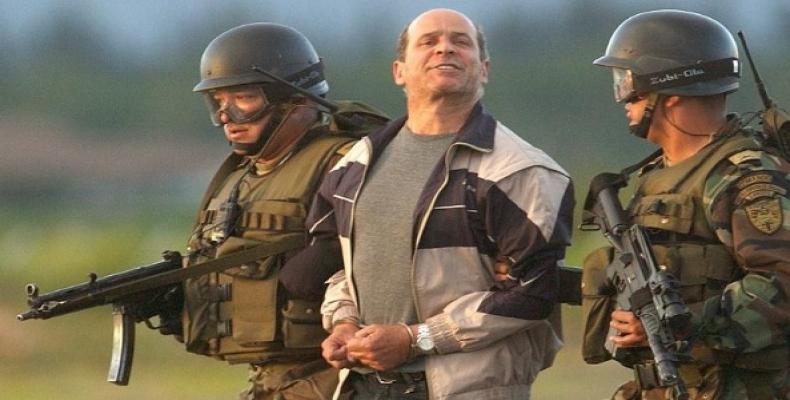Ricardo Palmera, aka Simon Trinidad, has spent 11 years in complete isolation in a U.S. "supermax" prison: a violation of the United Nations Convention against torture.
Your opinion of Trinidad, one of the leaders of the Revolutionary Armed Forces of Colombia's (FARC), will be different depending on where you're from, your background and your politics.
For some he's a guerrilla hero, who has been at the forefront of brokering peace and scaling back Colombia's five-decade internal conflict. For others he is an enemy of the state: a dangerous drug trafficker, worthy of a high security cell.
teleSUR looks at this figure and what he means for Colombia's peace process.
"There's our children, women, our families, our communities and normal life on the one hand, but on the other there's our political convictions.
"If I don't do this, what am I? A traitor. So I said no. That's why I put up with pain and suffering to fight for what we lack. That's why I took up the guerrilla struggle, " Trinidad stated.
Harvard-educated Simon Trinidad is one of the Revolutionary Armed Forces of Colombia's longest-serving senior leaders; he joined the guerrilla group in 1987.
Trinidad served as the FARC's de facto foreign minister and while on a 2004 diplomatic trip to neighboring Ecuador, to discuss FARC prisoners of war with a U.N. representative, he was arrested and deported to Colombia.
Then under the administration of far-right President Alvaro Uribe, Colombia opted to not try the FARC leader, but instead asked the U.S. to request his extradition. Leaked cables show his extradition request had to be concocted, as the U.S. did not have any pending charges against him.
Once in the United States, Trinidad was forced to stand trial on what are believed by many to be trumped-up charges.
The prosecution said Trinidad helped the FARC kidnap three U.S. contractors, after their reconnaissance airplane had been shot down by the guerrillas in 2003. The U. S. claims that the hostages were civilians, while the FARC saw them as military contractors deployed under Plan Colombia, the supposed anti-narcotics operation through which the U.S. military achieved a foothold in Colombia.
While the contractors went free in 2008, Trinidad was sentenced to 60 years in maximum-security.
Two juries were unable to reach a verdict. Only after jurors in the second trial were instructed to resume deliberations he was found guilty of conspiracy to take the contractors hostage.


